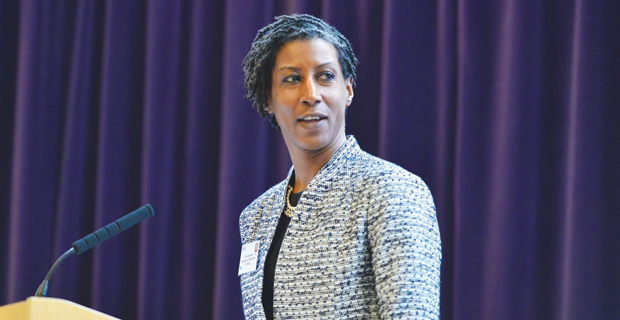
The government risks “throwing the baby out with the bathwater” with cuts to qualifications it sees as worthless, FE sector leaders have warned.
A host of speakers at a seminar on the future of adult vocational qualifications urged Skills Minister Matthew Hancock to think carefully about public funding cuts to apparently unpopular qualifications.
It comes after the minister was accused of belittling some qualifications in an announcement that 5,000 faced the public funding axe.
At the seminar, organised by the Westminster Employment Forum and held at the former Whitehall Palace building in central London, Lifetime Awarding managing director John McNamara said he accepted that “any awarding body worth its salt” would cull qualifications that weren’t selling.
But he said the government risked “throwing the baby out with the bathwater”, and warned against belittling qualifications.
Mr McNamara said: “There might be qualifications that appear to be low quality but they are a vehicle to get people with learning difficulties, people who are unemployed and divorced from the system back into work. We throw those out at our peril.”
His comments were echoed by Association of Employment and Learning Providers (AELP) chief executive Stewart Segal, who said: “Most of the qualifications I looked at I am sure come about through a very distinct requirement from a very small number of employers. We need to be very careful.”
Department for Business, Innovation and Skills deputy director for standards and qualifications Bobbie McClelland defended the qualifications reform as being in the “wider context of a more responsive system”, and spoke about a move towards increased use of “destination data”.
She said: “We are looking to bring in new outcome success measures so rather than just focusing on qualification success rates, we are working on matching data to look at destinations into jobs and inter learning and the earning change that happens to people throughout their lives.
“We will be publishing experimental data on this at provider level in July.”
The panels also discussed the employer ownership of skills agenda, a key government policy which has so far seen £578m spent on two pilot projects with businesses across the UK.
The policy itself was widely welcomed by most, but doubt was cast over the effectiveness to date of the pilot schemes.
BAE Systems chief executive Nigel Whitehead, who is a commissioner for the UK Commission for Employment and Skills (UKCES) and authored a review of adult qualifications last year, said: “Today there is limited employer ownership of skills in its broader sense. We have an over-centralised and over-complex system today.
“Our view was that employer engagement through industrial partnerships was the way to go. Employers need to work together in partnership and step forward. If we are to prepare people for the world of work my personal belief is we have to give opportunities in the workplace. It has made me think about the way I open up my doors.”
Mara Bogdanovic, head of business engagement at awarding body OCR, said she was underwhelmed by the impact of the policy so far.
She said: “Employer ownership of skills is a good vision, a great vision, because employers know what they need from their workforce. But I have to ask: ‘Where is the pattern going? What is the plan for making employer ownership of skills a reality? How is everything going to fit together?’
“There is a lot going on at the moment for awarding bodies. It feels a bit like background noise. We were really excited about the original announcement and the possibilities that might bring. Up until now we don’t see that anything very earth-shattering has happened.
“I just think we would like to see what the plan is and whether we are up to the plan. I am not sure we are seeing all the momentum we should be seeing.”
And Ofqual’s regulation director, Fiona Pethick, had tough words for awarding organisations, which she said would be held to account by the watchdog over the qualifications they offer.

She said: “We are going to be expecting awarding organisations to address the shortcomings and remove qualifications where they cannot be sure of the quality. If we find problems, we will take action. That is my final message.”
Barking and Dagenham College’s head of business Janet Bywater spoke about how colleges had a distinct role to play in delivering skills to meet the demand in the UK.
She said: “We recognise our job is to deliver the skills the UK economy needs. You cannot be based in an area like Barking and Dagenham and not realise that your job is to help people through. We get it. We understand we need to be working with employers.”
————————————————————————————————————————————–
Click here to read David Hughes Expert piece on ‘Seeing value in qualifications’








Your thoughts